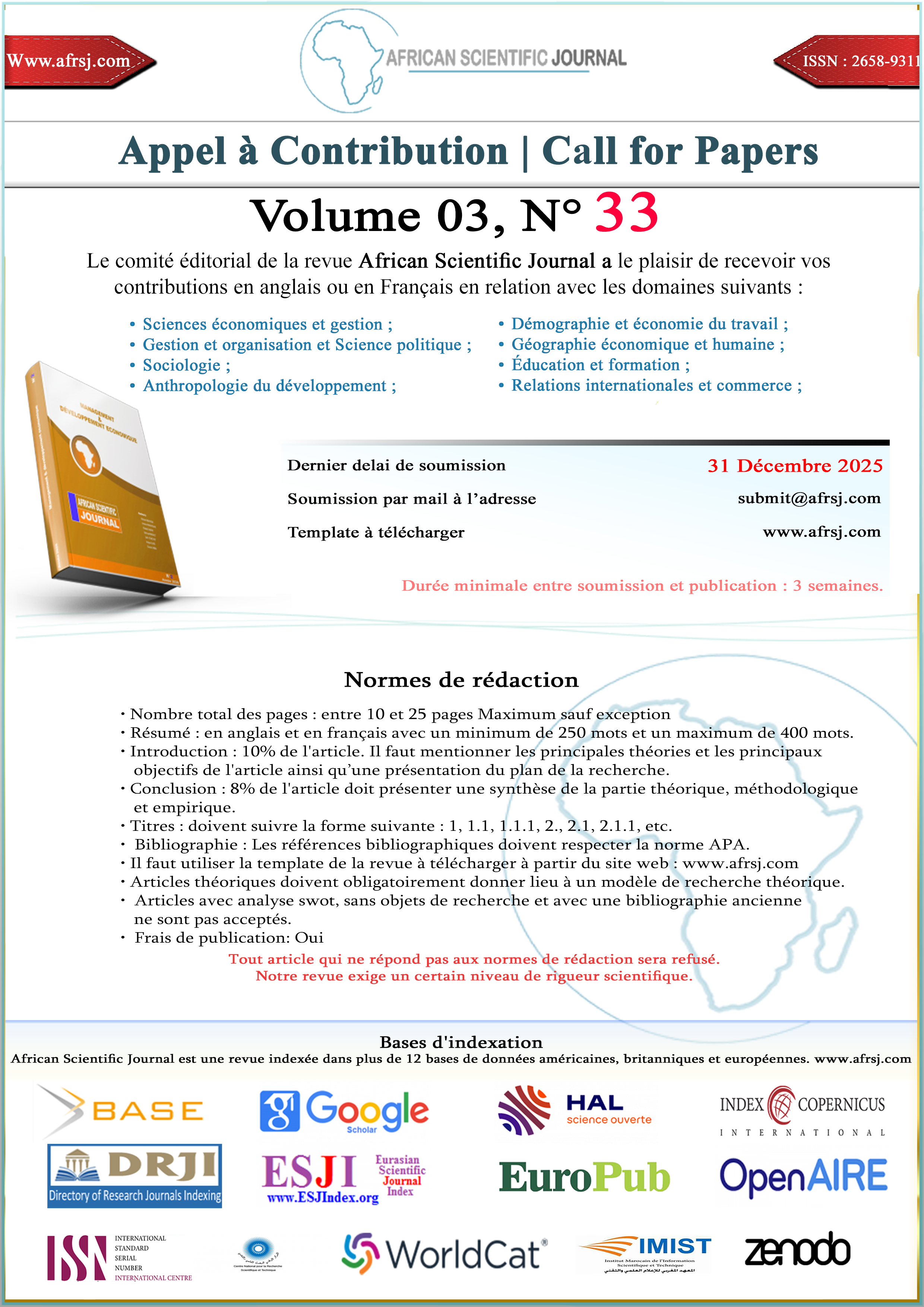Impact of Artificial Intelligence on Management Control : Literature Review
DOI :
https://doi.org/10.5281/zenodo.17698447Résumé
Abstract
This study examines the conditions under which the adoption of artificial intelligence (AI) improves management control performance and explores how organizations can optimize its implementation to achieve effective, ethical, and sustainable results. Understanding when and how AI contributes to improved decision-making and organizational performance is essential for guiding strategic investments and managerial practices. While AI has strong potential to transform management control through automation, predictive analytics, and decision optimization, existing research remains fragmented and lacks a comprehensive view of the contextual factors influencing its success. To address this gap, this article presents an integrative review of the academic and professional literature published between 2018 and 2025, encompassing empirical and conceptual contributions related to the implementation of AI in management control systems. The findings reveal that AI significantly enhances management control by automating repetitive tasks, improving forecast accuracy, and strengthening analytical and strategic capacities. However, its adoption is hindered by high implementation costs, ethical and algorithmic biases, integration difficulties, and resistance to change. Successful implementation depends on four critical factors: effective change management, continuous skill development, progressive system integration, and robust data governance ensuring transparency and accountability. The main conclusion of the study is that AI adoption can substantially improve the effectiveness and strategic contribution of management control functions only when it is supported by strong organizational readiness, human competence, and ethical oversight. AI should thus be viewed not merely as a technological innovation, but as a transformative capability that reshapes the controller’s role toward a more analytical, advisory, and value-driven function. This research contributes to the growing literature on digital transformation in management control by proposing an integrative conceptual framework linking AI’s benefits, success factors, and challenges to managerial performance, while providing a foundation for future empirical testing of these relationships.
Keywords : Artificial Intelligence, Management Control, Performance, Technology Adoption, Digital Transformation.
Téléchargements
Publiée
Comment citer
Numéro
Rubrique
Licence
(c) Tous droits réservés African Scientific Journal 2025

Ce travail est disponible sous licence Creative Commons Attribution - Pas d'Utilisation Commerciale - Pas de Modification 4.0 International.





















